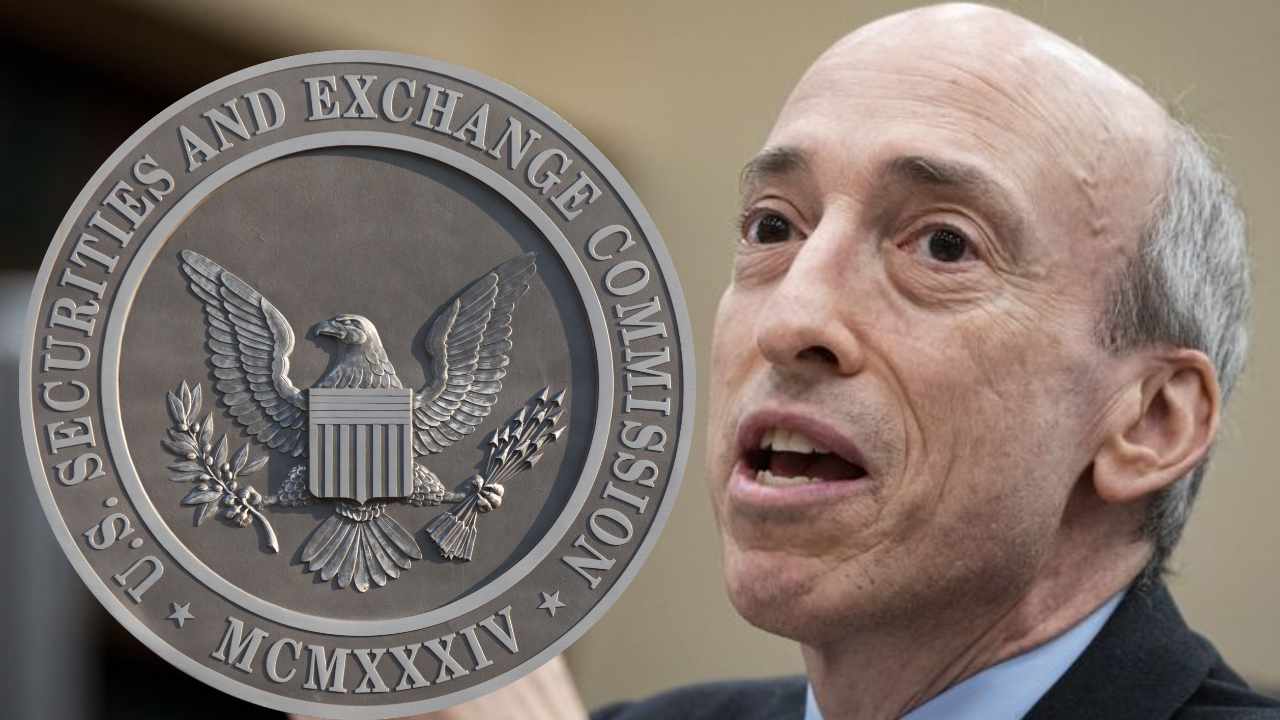
The chairman of the U.S. Securities and Change Fee (SEC), Gary Gensler, has reiterated that the majority crypto tokens are securities, emphasizing that “the legislation is obvious on this.” Nonetheless, the Commodity Futures Buying and selling Fee (CFTC) has requested Congress for authority over crypto spot markets and a number of other payments have been launched in Congress this 12 months to offer the CFTC with the mandatory authority.
SEC Chairman Gary Gensler on Crypto Regulation
The difficulty of which federal company ought to regulate the crypto market has gained a lot consideration lately. Whereas the chairman of the U.S. Securities and Change Fee (SEC), Gary Gensler, has mentioned that almost all of crypto tokens are securities and may fall below the purview of his company, many individuals and lawmakers consider that it ought to be the Commodity Futures Buying and selling Fee (CFTC) that regulates the crypto sector. Furthermore, three payments have been introduced in Congress this 12 months to make the CFTC the regulator of the crypto markets.
In an interview with CNBC Monday, Gensler responded to a query about who ought to regulate the crypto sector. The SEC chief defined:
Our company is an company that oversees this fundamental cut price. When a bunch of entrepreneurs is elevating cash from the general public and the general public is anticipating a revenue, they want disclosure — full, honest, and truthful disclosure, and that’s the core cut price in our capital markets.
The SEC chairman continued: “You get to take the chance however the particular person elevating cash or the individuals elevating cash has to reveal numerous info to you. That’s how our capital markets work greatest, and the SEC is excellent at this and that’s what we do.” He emphasised:
The legislation is obvious on this. I consider primarily based on the info and circumstances, most of those tokens are securities.
On Monday, on the Monetary Stability Oversight Council (FSOC) assembly, presided by Treasury Secretary Janet Yellen, Gensler reiterated: “Of the practically 10,000 tokens within the crypto market, I consider the overwhelming majority are securities. Gives and gross sales of those crypto safety tokens are coated by the securities legal guidelines. Given that the majority crypto tokens are securities, it follows that many crypto intermediaries are transacting in securities and must register with the Securities and Change Fee in some capability.”
Relating to the SEC collaborating with the CFTC, Gensler confused:
To the extent that crypto intermediaries might must at some point register with each the SEC and the Commodity Futures Buying and selling Fee (CFTC), I might be aware we at the moment have twin registrants within the broker-dealer area and within the fund advisory area.
In the meantime, the CFTC has requested Congress for authority over the crypto money market. CFTC Chairman Rostin Behnam defined final week that for the reason that CFTC is a derivatives regulator, it doesn’t at the moment oversee money markets. Due to this fact, he has requested Congress for “money authorities, in order that we will go within the bitcoin money market, the ether money market, and the opposite digital commodity token [markets],” the CFTC chief explained final week.
He additionally mentioned that the SEC and CFTC should “determine that out legislatively” as a result of crypto is a brand new asset class. “There are completely different parts and traits of this asset class versus conventional asset lessons,” Behnam mentioned, including: “Now we have to depend on 70-year-old case legislation to find out what’s a safety, what’s a commodity.”
Who do you assume ought to regulate the crypto market, the SEC or the CFTC? Tell us within the feedback part under.
Picture Credit: Shutterstock, Pixabay, Wiki Commons
Disclaimer: This text is for informational functions solely. It isn’t a direct supply or solicitation of a suggestion to purchase or promote, or a advice or endorsement of any merchandise, providers, or corporations. Bitcoin.com doesn’t present funding, tax, authorized, or accounting recommendation. Neither the corporate nor the creator is accountable, straight or not directly, for any injury or loss brought about or alleged to be brought on by or in reference to using or reliance on any content material, items or providers talked about on this article.






More NFT News
Machine Studying in Focus as Chainalysis Acquires Hexagate
Bitcoin Traders Are Now Up $67,000 On Common – And This Is Simply The Begin
Extra Than Half of Crypto Tokens, Memecoins Launched in 2024 Have been Malicious: Blockaid